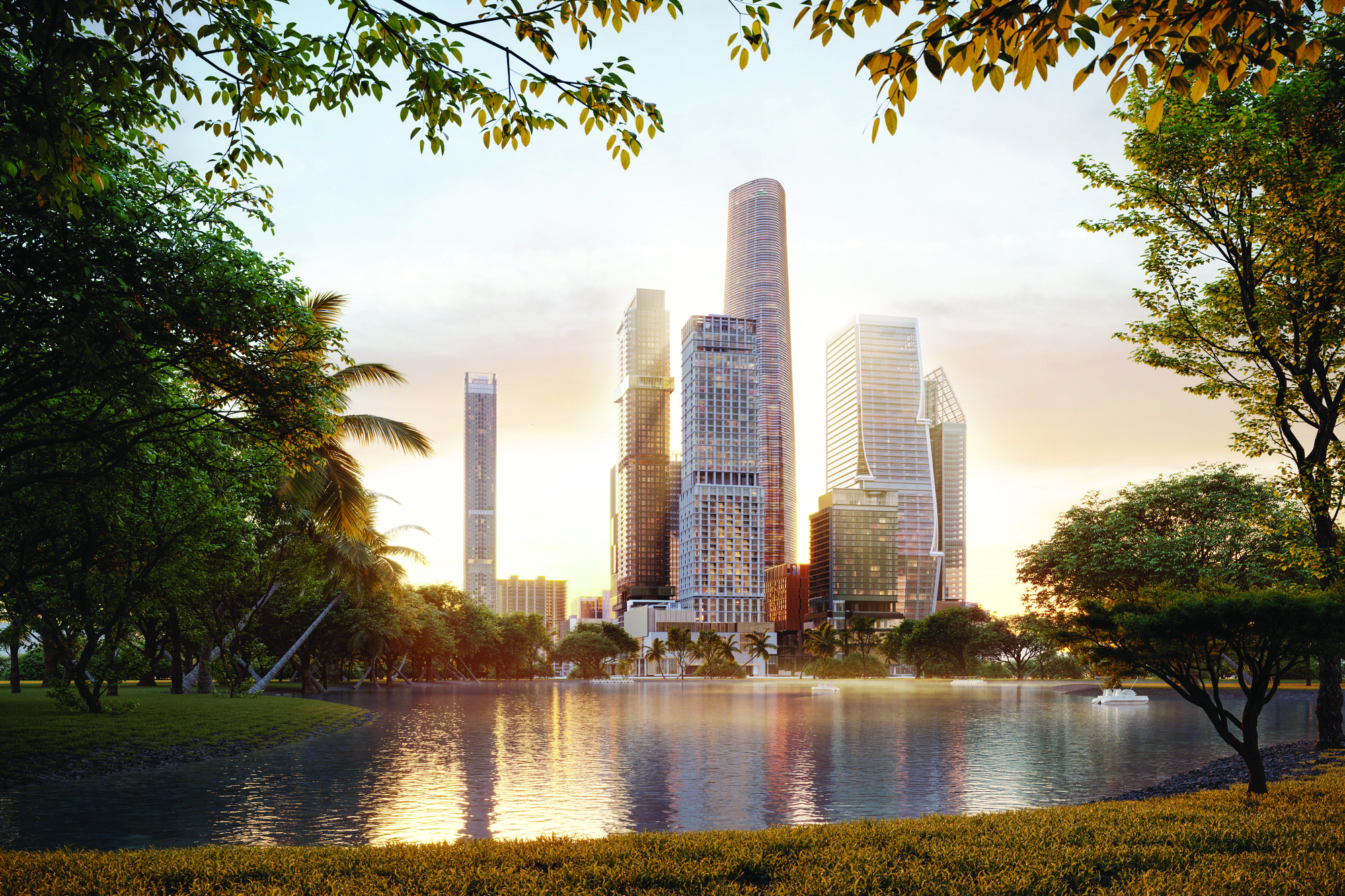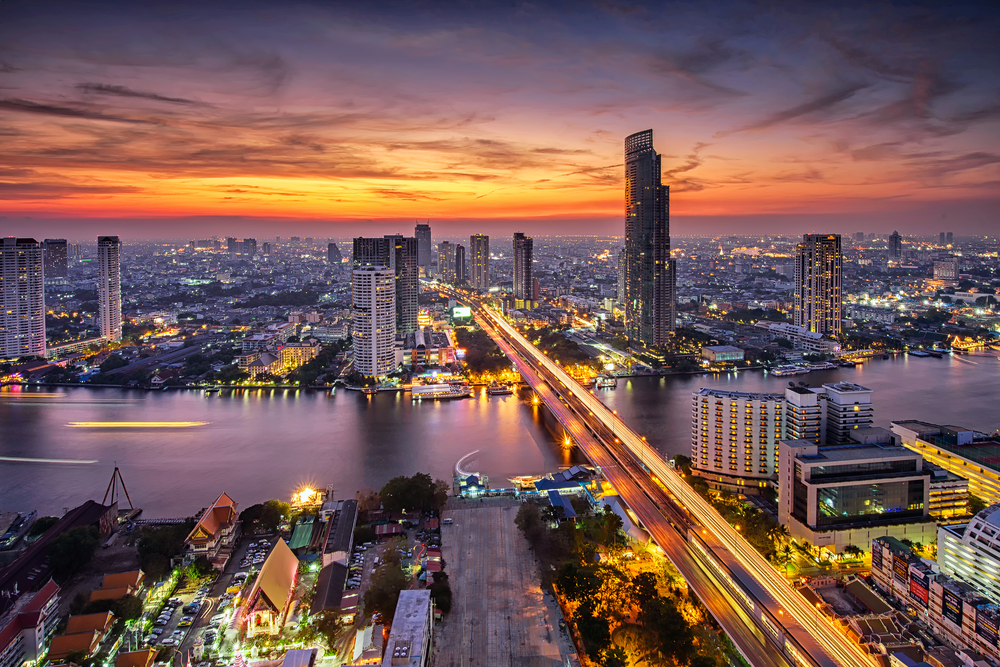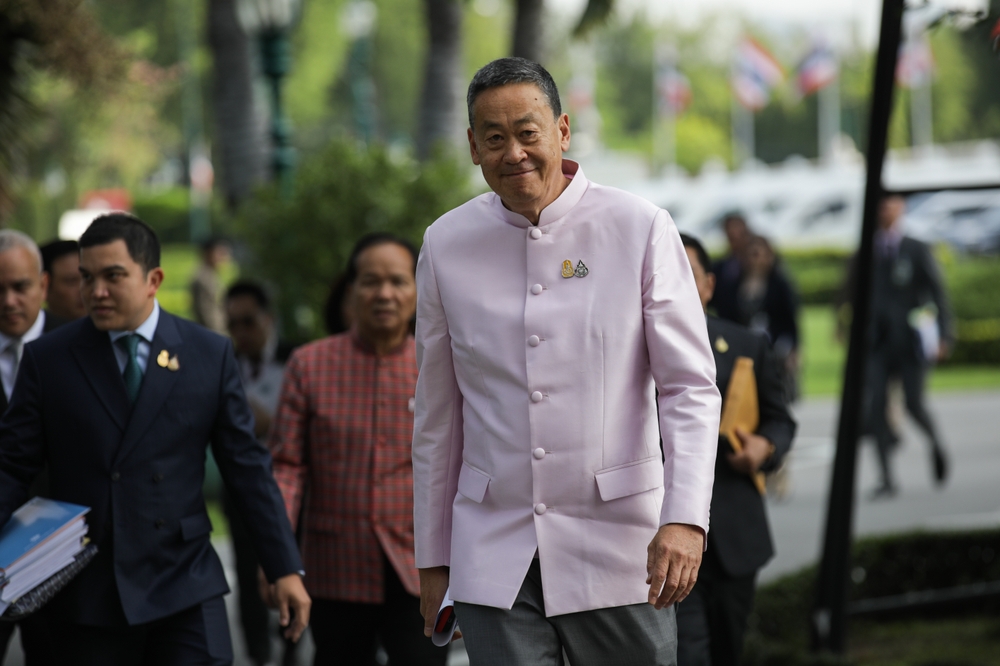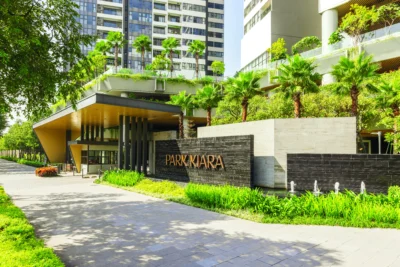Thai real estate faces turbulence amid rising costs and economic challenges
Things may look rosy at the highest echelons of Thailand’s real estate market, but high interest rates and rising inflation are hitting developers and end users alike
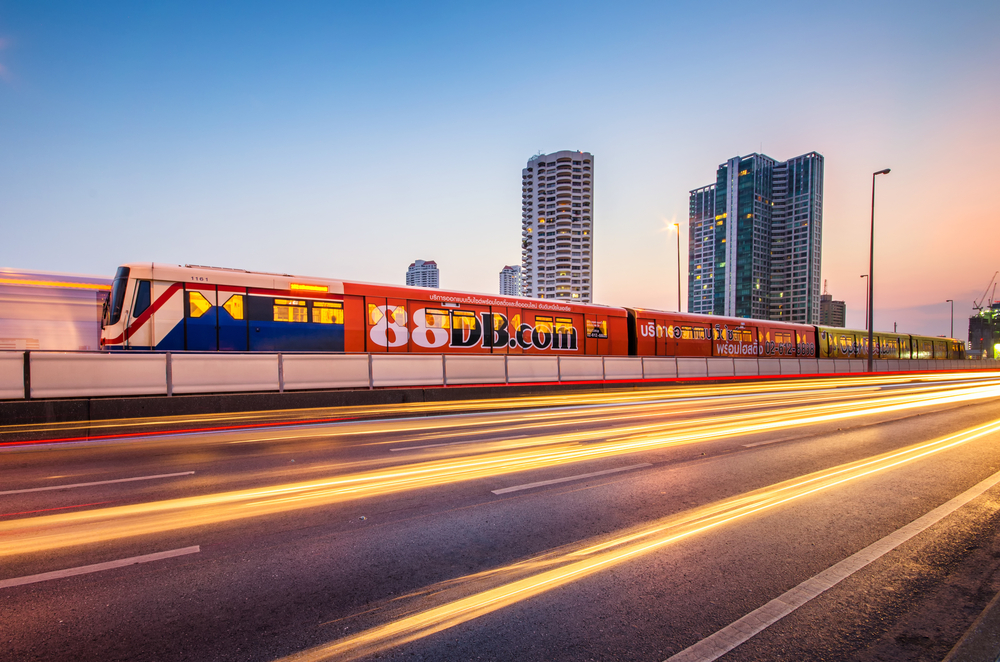
On Rama 4 Road in Bangkok, on the fringes of Lumpini Park—the main green lung in the city— Thailand’s biggest construction project, One Bangkok, is taking shape.
Once completed, it will be a towering collection of apartments, office blocks, luxury hotels, and shops. Bets on Thailand’s property market don’t come bigger. Indeed, it is undoubtedly the most extravagant undertaking yet seen in the Kingdom.
But One Bangkok is something of a bullish outlier. Beyond the smoke and mirrors, Bangkok’s residential sector is enduring a rough ride.
This year, only 40,000 new condominium units are expected to be launched in the city’s midtown and suburban areas, according to the latest data from CBRE.
Excepting pandemic-ravaged 2020 and 2021, when launches in downtown and suburban areas were at their lowest since 2012, this year is shaping to be among the slowest in over a decade.
The downtown sector will experience some marginal improvement this year—with 4,500 new launches compared to 3,153 last year—but remains well down on pre-pandemic levels.
The chief culprits are rising interest rates and a sputtering economy. Things have become so concerning that Thailand’s prime minister Srettha Thavisin declared in February that the economy was at a “critical stage”.
He has been at loggerheads with the central bank to cut the interest rate, which the central bank kept in February at 2.50 percent, the highest in more than a decade.
Despite his repeated warnings of the toll high household debt and China’s slowdown are taking on the Thai economy, the bank remains resolute: Unless structural problems in the economy are solved, it won’t cut rates.
“2024 started with a cautious outlook for the first half, with the prospect of a more active market in the second half of the year,” says Roongrat Veeraparkkaroon, managing director of CBRE Thailand.
“Higher interest rates and concerns over inflation saw end-of-2023 GDP numbers fall well short of expectations. As a result, we expect early 2024 to be relatively muted in terms of activity.”
For the housing market, the consequences have been tough.
Home building costs rose throughout 2022, hitting their highest growth in 19 quarters in the last quarter at 6.2 percent. For this year, house prices are predicted to rise by between five and 10 percent, particularly for new projects.
Leong Choong Peng, an advisor to Mentabuild, a construction consultancy, says developers usually bear the brunt in tough times.
Higher interest rates and concerns over inflation saw end-of-2023 GDP numbers fall well short of expectations. We expect the early part of 2024 to be relatively muted in terms of activity
“Higher interest rates generally affect the developers due to the increase in project financing costs, more than the contractors or builders as they are primarily concerned with rising fuel and material manufacturing costs,” he states. “The material to labour cost ratio in Thailand is roughly 70 to 30. Therefore, the increase in material cost has more effect on overall construction cost.”
For younger buyers, it’s meant their ideal home has become suddenly unattainable amid mounting household debt and rising inflation that has made banks cautious to approve loans.
“I want to buy a home, but it feels like I can only afford a townhouse with my budget,” Kamonchanok, an office worker, tells The Nation newspaper. “The dream of having my ideal home seems challenging given the current state of the housing market in Thailand.”
Analysts predict fewer low-rise launches in 2024 because of stricter lending policies for projects and mortgages.
Instead, developers will shift their attention to the more buoyant luxury market.
Nichakamol Horungruang, senior manager for research and consulting at JLL, anticipates the completion of approximately 2,800 new luxury units across 10 projects, and the unsold rate to remain below 5% throughout the year.
“Luxury condos are often purchased by wealthy individuals and foreigners,” he says. “Additionally, most Thai buyers in the luxury market are end users who are primarily seeking to reside in the units rather than purchasing for investment purposes.
“The upcoming new projects will be positioned at the topend tier of the market, with an average selling price of approximately THB300,000 per square metre (USD8,765) or higher.”
Among the more ambitious projects on the cards are the Nirvana Collection Krungthep Kreetha, a super-luxury block of single houses priced between THB80 million to THB150 million.
In the neighbourhood of Ari, Vi Ari has launched near the BTS Skytrain station. The complex is made up of just six houses with prices starting at THB82 million.
Outside Bangkok, Phuket is also enjoying a bump in new luxury developments. Hip hotel name Standard International is collaborating with Thai developer Sansiri on new branded residences in Phuket and Hua Hin, which is already home to a Standard hotel. Prices for the units range from THB8.99 million to THB100 million with move-ins for Hua Hin starting in Q2 2026 and Phuket possibly in late 2027.
Yet the economy can’t rely on a robust luxury market alone.
Prime Minister Srettha, who is a former property tycoon (he co-founded Sansiri), says housing is an “important issue that needs immediate fixing” for its potential to have a knock-on effect on other businesses.
Among the measures he has proposed are reducing property transfer and mortgage fees; granting soft loans to low-income earners for their first house purchase; reducing land and building tax by 50 percent for a year; and reboosting the full loan-to-value ratio (LTV) to stimulate the buyer market.
Nichakamol of JLL says these combined should give more buyers, from a wider demographic, money to play with and more affordable housing options.
“The announced policies are expected to be effective and have a positive impact on the overall market, including the luxury segment,” he says. “However, we will monitor their implementation and effectiveness in the coming months.”
This article was originally published on asiarealestatesummit.com. Write to our editors at [email protected].
Recommended
Park Kiara in Hanoi raises the bar for sustainable urban living
Park Kiara in Hanoi is a repudiation of low-density, car-dependent suburban sprawl
6 reasons Bekasi is rising as Greater Jakarta’s next hotspot
One of Greater Jakarta’s rising stars is prospering, thanks to ample recreation and a contingent of desirable housing projects
6 developments driving Asia’s green real estate shift
Developers are being incentivised to push a green agenda into daring new realms
The Philippines’ LIMA Estate drives sustainable industrial growth
LIMA Estate models a citywide vision that uplifts workers while appealing to climate-conscious employers

